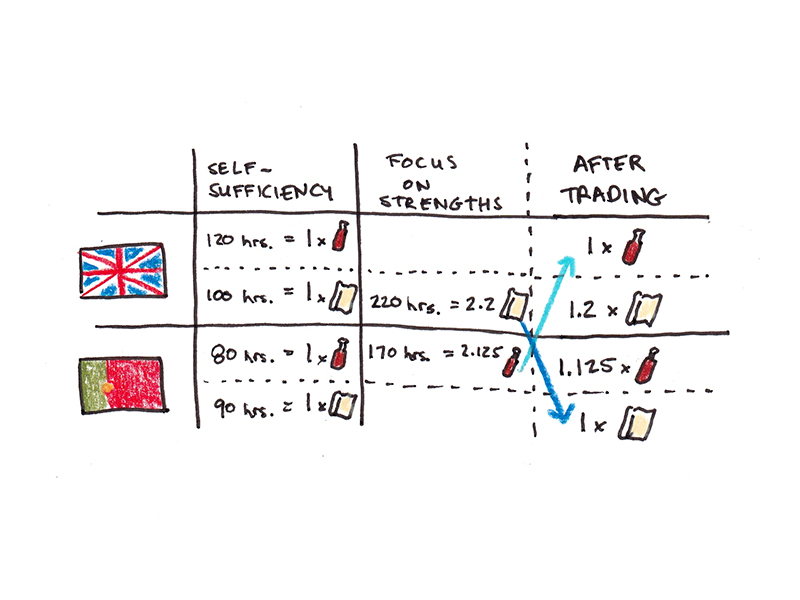Focusing on your strengths is not always a good advice

Very few self-help knowledge is misunderstood like the advice of “focusing on one’s own strengths”. Like most popular ideas, it has a kernel of authenticity, but in many cases it simply doesn’t work.
In fact, the opposite situation – focusing your biggest weakness – is usually more productive. There is a simple psychological model to understand this difference.
It can be helpful when focusing on your strengths
The basic argument focused on your strengths is the economic principle of comparative strengths, first expressed by British economist David Ricardo in 1817.
Ricardo considers two different countries, Portugal and England, and they produce two different commodities: fabric and wine. Ricardo believes that Portugal is usually more efficient than England, so the time it takes to produce a unit looks like this:
If the two countries cannot trade, it will take 220 hours to make a wine and cloth in England, and 170 hours to do the same in Portugal. By contrast, it would be better to specialize both if transactions are allowed. Within the time required to make each cloth and wine, 2.2 sets of cloth can be made in England and 2.125 sets of wine can be produced in Portugal. If both trade one-on-one, that makes the English extra 0.2 units of fabric and Portugal extra 0.125 units of wine for the exact same job.

There are many places in your own life that make sense in the theory of comparative advantage. Although our living standards depend on thousands of different professionals, most people can only perform a few different jobs. In a family or company, everyone adopts a specific role. Everyone who specializes in their strengths, rather than becoming a generalist, makes us all better.
However, be aware of a key assumption: You need to be able to trade to ignore your weaknesses!
Focusing on weaknesses can help
We should get our attention when weaknesses cannot be delegated, outsourced, or ignored. In many cases, skills cannot be delegated to others:
- When one component of a skill is another skill. A lawyer who is not a good reader cannot be a good lawyer, and there is too much reading at work that cannot be avoided. Similarly, programmers cannot easily avoid understanding the systems that interact with her work.
- When there are rules to prohibit it. The golfer can’t hire putts for him, either, even if he’s bad on the green.
- When transaction costs make outsourcing obsolete. I’m not a great handyman. I won’t try bathroom or kitchen renovations alone. However, fixing squeaky hinges or hanging image frames is not worth the cost of hiring someone, so it helps learn to do it yourself.
In short, when the components of a skill are inevitable, focusing on one’s own weaknesses rather than strengths becomes a more useful advice. Focusing on your strengths often pays off when you can delegate, outsource, or choose a niche that doesn’t require a specific capability.



